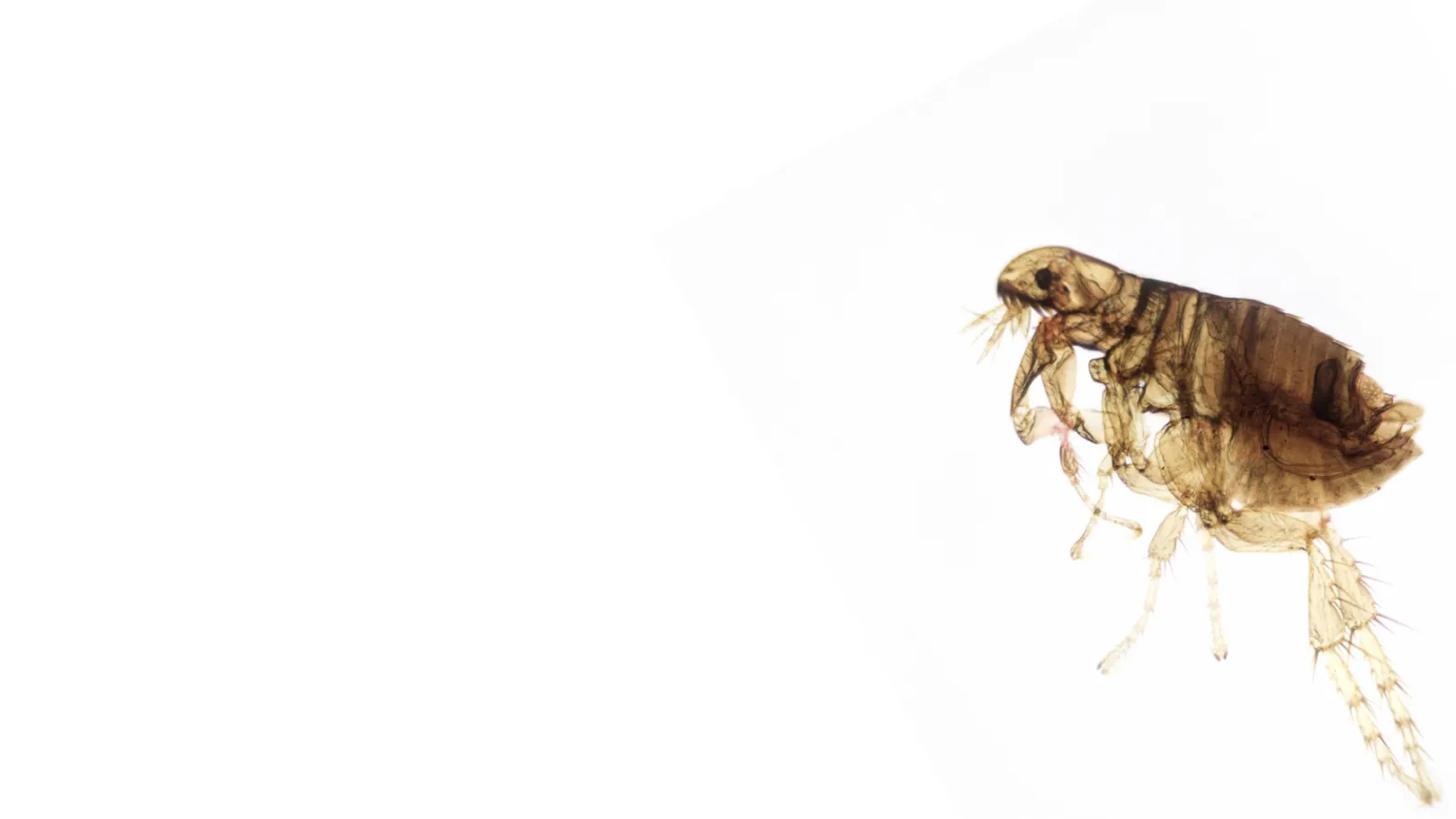
Fleas
Latin Name: Ctenocephalides felis felis
Fleas are a common pest in Poquoson, VA, particularly during the warmer months when their populations thrive. These small, wingless parasites are known for their ability to jump long distances and feed on the blood of mammals and birds. Fleas can cause irritation and discomfort for pets and humans alike, and they may also transmit diseases and tapeworms.
Common Fleas in Poquoson, VA
- Cat Flea (Ctenocephalides felis): The most common flea species in the area, affecting cats, dogs, and sometimes humans.
- Dog Flea (Ctenocephalides canis): Less common but similar to cat fleas, these pests also target household pets and wildlife.
Where Fleas Hide
Fleas often inhabit:
- Lawns and Shaded Areas: Especially where pets rest or wildlife frequently visits.
- Carpets and Upholstery: Indoors, fleas hide in fibers, making vacuuming essential.
- Pet Bedding: This is a hotspot for flea eggs and larvae.
Issues Caused by Fleas
- Health Problems: Fleas can cause severe itching, allergic dermatitis, anemia in young pets, and secondary infections from scratching.
- Disease Transmission: Fleas are vectors for diseases like murine typhus and can carry tapeworms.
How Fleas Spread
Fleas are often introduced into homes by pets or wildlife. Stray animals, such as raccoons or opossums, can bring fleas into yards, where they latch onto household pets.
Flea Control in Poquoson, VA
Given the coastal climate of Poquoson, which features warm and humid conditions, proactive flea management is essential. Effective flea control involves:
- Regular Pet Treatments: Use veterinarian-recommended flea preventatives for your pets.
- Yard Treatments: Mares professional flea control services can apply targeted treatments to reduce flea populations in outdoor areas.
- Indoor Cleaning: Frequent vacuuming and washing pet bedding in hot water help control indoor infestations.
If fleas become a recurring issue, professional pest control services in Poquoson, VA, can provide comprehensive solutions to manage these pests and prevent future infestations.
